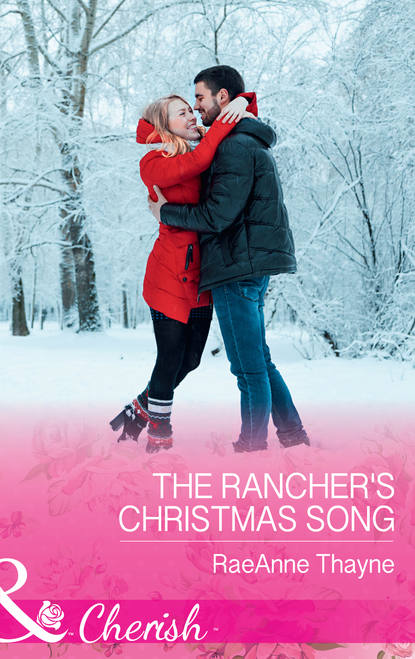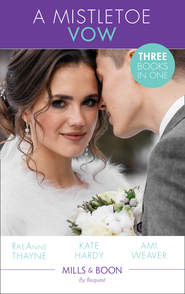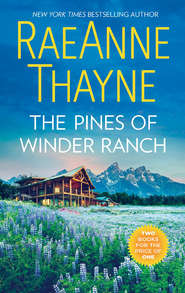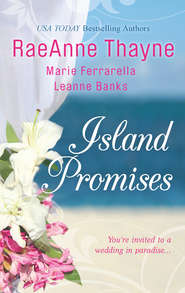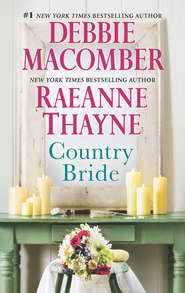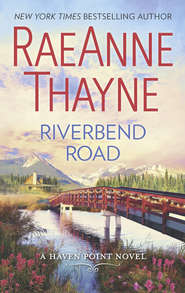По всем вопросам обращайтесь на: info@litportal.ru
(©) 2003-2025.
✖
The Rancher's Christmas Song
Автор
Год написания книги
2019
Настройки чтения
Размер шрифта
Высота строк
Поля
“He’s real mad about it, and thinks it’s not fair and he wants to be inside where it’s warm, then the animals help him remember that Christmas is about peace on earth and stuff.”
“And baby Jesus and wise men and shepherds,” Trevor added.
“That sounds like a good one.”
She combed through her memory bank but wasn’t sure if she had ever heard it.
“It’s our dad’s favorite Christmas song in the whole wide world. He hums it all the time and keeps the CD in his pickup truck.”
“Do you know who sings it?” she asked. It would be much easier to track down the guitar chords if she could at least have that much info.
The boys named a country music group whose name she recognized. She wasn’t very familiar with their body of work.
“So can you teach us?” Colter asked as they neared the turnoff for the Broken Arrow. “It has to be with the guitar, too.”
“Please?” Trevor asked. “Pretty please with Skittles on top?”
Well, she did like Skittles. She hid a smile. “Why is this so important to you? Why do you want to learn the song so badly?”
As she glanced in the rearview mirror, she saw the boys exchange looks. She had noticed before they did that quite often, as if passing along some nonverbal, invisible, twin communication that only they understood.
“It’s for our dad,” Trevor finally said. “He works hard all the time and takes care of us and stuff and we never have a good present to give him at Christmas.”
“Except things we make in school, and that’s usually just dumb crap,” Colter said. “Pictures and clay bowls and stuff.”
Ella had a feeling the art teacher she shared a classroom with probably wouldn’t appreciate that particularly blunt assessment.
“When we went to bed last night after the concert, we decided we should learn that song and play it for our dad because he loves it so much, but we don’t know the right words. We always sing it wrong.”
“Hey, maybe after we learn it, we could play and sing it in the Christmas program,” Colter said.
“Yeah,” Trevor said, “Like that guy and his wranglers last night.”
She didn’t know how to respond, afraid to give the boys false hope. She didn’t even know what song they were talking about, let alone whether it was appropriate for a Christmas program designed for senior citizens.
“I’m afraid I’m not familiar with that song—” she began.
“You could learn it, couldn’t you?” Colter said.
“It’s probably not even too hard.”
As she turned into the ranch, they passed a large pasture containing about a dozen horses. Two of them cantered over to the fence line, then raced along beside her SUV, their manes and tails flying out behind them.
She felt the familiar panic, but something else, a long-buried regret for what she had lost.
“If I can find the song and agree to teach you, I need something from the two of you in return.”
“Let me guess. You want us to quit messing around at rehearsal.” Colter said this in the same resigned tone someone might use after being told they faced an IRS audit.
“Absolutely. That’s one of my conditions. You told me you could behave, but today wasn’t a very good example of that. I need to be able to trust you to keep your word.”
“Sorry, Miss Baker.”
“We’ll do better, we promise.”
How many times had the boys uttered those very same words to one voice of authority or other? No doubt they always meant it, but something told her they would follow through this time. It touched her heart that they wanted to give this gift to their father, who had sacrificed and struggled and refused to give up custody after their mother died.
She wanted to help them give something back to him—and she wanted something in return, something that made her palms suddenly feel sweaty on the steering wheel.
“That is one of my conditions. And I’m very firm about it.”
She paused, sucked in a breath, then let it out in a rush and spoke quickly before she could change her mind.
“I also have one more condition.”
“What?” Trevor asked.
Her heart was pounding so hard, she could barely hear herself think. This was foolish. Why did she think two seven-year-old boys could help her overcome something she had struggled with for twenty years?
“You said you could teach me how to ride horses again. I would like that, very much. I told you it’s been a long time since I’ve been on a horse. I...miss it.”
More than she had even dared acknowledge to herself.
Once, horses had been her passion. She had dreamed about them, talked about them, drew pictures of them, even during the months when she was living in Boston during the ten months out of the year her mother had custody of her. It used to drive Elizabeth crazy.
Everything had changed when she was eight.
“You really can’t ride?” Trevor said. “You said that before but I didn’t think you meant it. You’re a grown-up.”
These boys probably spent more time in the saddle than out of it. She had seen them before as she was driving by the ranch, racing across the field and looking utterly carefree. Until now, Ella hadn’t realized how very much she had envied them.
“Not everyone is as lucky as you two,” she said as she pulled up to the large red indoor horse barn and arena. “I learned how to ride when I was a child, but then I had a bad fall and it’s been...hard for me ever since.”
Hard was an understatement. What she didn’t tell the boys was that she had a completely reasonable terror of horses.
She had been only a year older than the boys, on a visit here with her father. Her sweet little Ruby had been nursing an injury so she had insisted to her father she could handle one of the other geldings on a ride with him along their favorite trail. The horse had been jittery, though, and had ended up being spooked by a snake on the trail just as they were crossing a rocky slope.
Not only had she fallen from the horse, but she had also tumbled thirty feet down the mountainside.
After being airlifted to Idaho Falls, she had ended up in a medically induced coma, with a head injury, several broken vertebrae and a crushed leg. She had spent months in the hospital and rehab clinics. Even after extensive therapy, she still limped when she was tired.
Her injuries had marked the final death knell to the marriage her parents had tried for years to patch back together. They had been separated on and off most of her childhood before then. After her riding accident, her mother completely refused to send her to the ranch.
The custody battle had been epic. In the process, a great gulf had widened between her and her father, one that she was still trying to bridge, twenty years later.
If she could only learn to ride, conquer her fear, perhaps Curt Baker wouldn’t continue to see her as a fragile doll who needed to be protected at all costs.
“I know the basics,” she told the boys now. “I just need some pointers. It’s a fair trade, don’t you think? I teach you a few chords on the guitar and you let me practice riding horses.”





